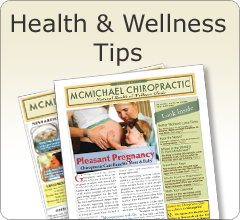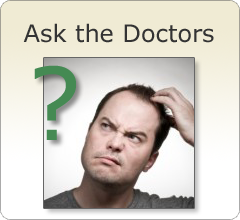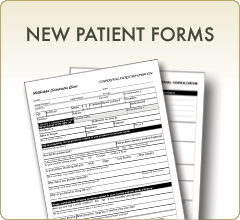Helping Children With Attention Deficit Disorder (ADD / ADHD)

In the past decade, prescriptions for Ritalin, a stimulant medication commonly used for attention deficit hyperactivity disorder (ADHD), increased five-fold, with 90 percent of all prescriptions worldwide consumed in the United States. As many parents grow leery of the traditional medical approach to ADHD, doctors of chiropractic are offering promising results with non-drug treatments that focus on postural muscles, nutrition and lifestyle changes that affect brain activity.
Why are so many children diagnosed with ADHD?
Some children may simply have difficulty learning certain subjects, but the current system—in a sense—prompts school officials to encourage their parents to have the children diagnosed with ADHD, says Dr. Scott Bautch, past president of the American Chiropractic Association (ACA) Council on Occupational Health. "The higher the number of disabled kids in the school, the more funding the school can apply for," says Dr. Bautch.
Some teachers might also have difficulty with students who have a different style of learning, according to Dr. Bautch. If the child is a visual learner—and the teacher is not—perhaps the child is not being taught in a way he or she can learn. Before diagnosing the child with ADHD, Dr. Bautch recommends doctors talk to the child and the parents: "Is the child too active? Bored? Has dyslexia or a different learning pattern? It can be a behavior problem, problems at home, or frustrations with the teacher's style," explains Dr. Bautch. "If we went to a conference where the speakers taught in a way we can't learn, we would be frustrated and would misbehave—we'd get up and leave or chat to the person sitting next to us."
Treating ADHD Medically
The traditional medical model, however, seems to follow the cookie-cutter principle. The diagnosis of ADHD is based on a questionnaire. But this is not enough, says Dr. Robert Melillo, a chiropractic neurologist. "True ADHD patients have other signs — tics, tremors, balance or postural problems, or unusual sensitivity to touch, movement, sights, or sounds." Unfortunately, although medications can keep ADHD under control, they don't cure it. Eighty percent of patients have ADHD features in adolescence, and up to 65 percent maintain them in adulthood.
Chiropractic Treatment for ADHD
Doctors of chiropractic and chiropractic neurologists offer a non-drug and non-invasive treatment alternative for ADHD patients that targets the underlying problems, not just symptoms. "Motor activity—especially development of the postural muscles—is the baseline function of brain activity. Anything affecting postural muscles will influence brain development. Musculoskeletal imbalance will create imbalance of brain activity, and one part of the brain will develop faster than the other, and that's what's happening in ADHD patients," says Dr. Melillo.
Doctors of chiropractic also recommend nutrition and lifestyle changes that may help correct or prevent biochemical imbalances that cause ADHD. Parents are encouraged to:
Info from the American Chiropractic Association
Chiropractic Care Can Help ADHD Patients...
If you or your loved one is diagnosed with ADHD or has the symptoms, schedule an evaluation at McMichael Chiropractic Clinic by calling (330) 492-1010 or click here. Doctors of chiropractic are trained to identify neurological problems and find individual non-invasive treatment modalities. They can also assess your nutritional status and help you find the diet that will help you manage ADHD.
Why are so many children diagnosed with ADHD?
Some children may simply have difficulty learning certain subjects, but the current system—in a sense—prompts school officials to encourage their parents to have the children diagnosed with ADHD, says Dr. Scott Bautch, past president of the American Chiropractic Association (ACA) Council on Occupational Health. "The higher the number of disabled kids in the school, the more funding the school can apply for," says Dr. Bautch.
Some teachers might also have difficulty with students who have a different style of learning, according to Dr. Bautch. If the child is a visual learner—and the teacher is not—perhaps the child is not being taught in a way he or she can learn. Before diagnosing the child with ADHD, Dr. Bautch recommends doctors talk to the child and the parents: "Is the child too active? Bored? Has dyslexia or a different learning pattern? It can be a behavior problem, problems at home, or frustrations with the teacher's style," explains Dr. Bautch. "If we went to a conference where the speakers taught in a way we can't learn, we would be frustrated and would misbehave—we'd get up and leave or chat to the person sitting next to us."
Treating ADHD Medically
The traditional medical model, however, seems to follow the cookie-cutter principle. The diagnosis of ADHD is based on a questionnaire. But this is not enough, says Dr. Robert Melillo, a chiropractic neurologist. "True ADHD patients have other signs — tics, tremors, balance or postural problems, or unusual sensitivity to touch, movement, sights, or sounds." Unfortunately, although medications can keep ADHD under control, they don't cure it. Eighty percent of patients have ADHD features in adolescence, and up to 65 percent maintain them in adulthood.
Chiropractic Treatment for ADHD
Doctors of chiropractic and chiropractic neurologists offer a non-drug and non-invasive treatment alternative for ADHD patients that targets the underlying problems, not just symptoms. "Motor activity—especially development of the postural muscles—is the baseline function of brain activity. Anything affecting postural muscles will influence brain development. Musculoskeletal imbalance will create imbalance of brain activity, and one part of the brain will develop faster than the other, and that's what's happening in ADHD patients," says Dr. Melillo.
Doctors of chiropractic also recommend nutrition and lifestyle changes that may help correct or prevent biochemical imbalances that cause ADHD. Parents are encouraged to:
- Remove as many food dyes, sugar, preservatives, and additives from the diet as possible.
- Focus on natural, mostly organic foods with as few pesticides or herbicides as possible.
- Determine if there is an allergy—usually starting with dairy and gluten and try elimination diets.
- Stop using pesticide sprays in the house.
- Avoid taking medications, nicotine, alcohol, and other drugs in pregnancy that may harm the fetus.
- Find ways to relax during pregnancy. Stress on the job may affect the unborn baby's health, as well.
- Breastfeed. The first months and years of a child's life are critical to physical and psychological development. Breastfeeding mothers' diets are important as well.
Info from the American Chiropractic Association
Chiropractic Care Can Help ADHD Patients...
If you or your loved one is diagnosed with ADHD or has the symptoms, schedule an evaluation at McMichael Chiropractic Clinic by calling (330) 492-1010 or click here. Doctors of chiropractic are trained to identify neurological problems and find individual non-invasive treatment modalities. They can also assess your nutritional status and help you find the diet that will help you manage ADHD.



